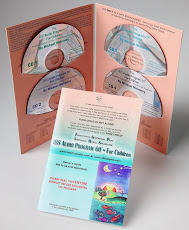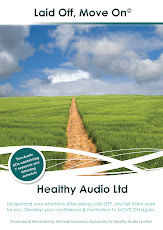Yesterday I made a post about an interesting study on IBS.
My commentary observations are below.
A revealing study entitled: International Survey of Patients With IBS: Symptom Features and Their Severity, Health Status, Treatments, and Risk Taking to Achieve Clinical Benefit has been published in the Journal of Clinical Gastroenterology: July 2009 - Volume 43 - Issue 6.
In it, it was reported that some surveyed “IBS patients would give up 25% of their remaining life, an average of 15 years, in order to receive a treatment that would make them symptom free.” This is quite an astonishing revelation. It was also reported that a combined 14% would risk a 1/100 chance of death and/or serious and disabling side effects in exchange for elimination of symptoms .
This is an astonishing finding, and is probably a fair representation of the frustration and despair felt by a good majority of refractory (resistant to treatments) IBS patients worldwide.
It was interesting to note that even with a listing of medications as well as complementary and alternative treatments, only two mind-body approaches, meditation (5%) and relaxation (5%), were reported as being tried by only 10% of the respondents.
There was absolutely no mention of the use of gut-directed or gut-specific clinical hypnotherapy reported. Yet, there has been over twenty years of its successful use in clinical trials. How astonishing it is to know that an individual would prefer to put a potentially harmful substance in their body before considering an extremely effective treatment method that is virtually free of side-effects.
It is certainly understandable why IBS patients who have already had years taken from their lives in pain and frustration, would opt for such a extreme consideration. Society is geared for instant results. Take a pill today and feel better within a few hours. Or perhaps, take a pill or two daily, and over a few weeks, feel better.
But what happens when the pills don’t result in the patient feeling better, no matter the duration of time? I have had a few people object to allowing themselves a mere ½ hour a day to relax and passively listen to a series of different guided interlinked imagery/hypnotherapy sessions for IBS over the course of a mere 80 days for a journey to feeling better. (The IBS Audio Program 100 is structured over a 100 days which includes 80 days of listening for only ½ an hour on those days).
For a few very severe refractory IBS cases, it may take a few more days, but the reality in my world, is that the vast majority of patients greatly reduce and even eliminate symptoms within the 100 days of their entire life. There is no risk of negative side effects; there is no risk of less years of life. Yet people are willing to take such risks, and they don’t have to.
The only thing standing between the IBS patient and starting to feel better and reduce symptoms is knowledge. IBS patients it seems are just not aware of all of their options. Clinical hypnotherapy, or guided imagery specifically designed for the IBS patients, such as the IBS Audio Program 100® for Adults and Teens and the IBS Audio Program 60® for Children have shown over many years that this treatment is not only safe, it is also extremely effective for the vast majority of patients.
For the IBS sufferer, there is a big difference between being willing to shorten their life by an average of 15 years in exchange for being symptom-free and a mere 100 days to take the journey to feeling better.
A big difference. Fifteen years or 5,475 days vs. 100 days.
That’s 5,375 days difference.
All rights of the report owners acknowledged.
Friday 18 September 2009
Thursday 17 September 2009
IBS sufferers prepared to die early for relief from symptoms
In a recent study by the respected International Foundation for Functional Gastrointestinal Disorders (IFFGD) and in collaboration with the equally respected University of North Carolina (UNC) Centre for Functional GI and Motility (all rights and copyright acknowledged) it was identified that some sufferers of Irritable Bowel Syndrome (IBS) were prepared to accept a chance of death or serious and disabling side effects if offered a medication that would give them total relief of their IBS symptoms.
Respondents report on average 73 days or 20% of the year where sufferers needed to restrict their activities due to IBS. The report makes serious reading, and I welcome it, because in the report it recognises the importance of the emotional impact of IBS on the life of the sufferer as a result of years of frustration and suffering with the physical symptoms.
37% of respondents were using complementary and alternative medicine.
8% of the 1966 respondents would accept a 1 in 100 chance of death to be symptom free.
6% of the 1966 respondents would accept a 1 in 100 chance of serious and disabling side effects to be symptoms free. See the full report here
The authors have to be congratulated on the breadth and depth of the report. One of the things which pleases me most about this report is the formal recognition of the emotional importance of IBS. IBS is not simply a physical condition - it has significant emotional aspects too.
As someone who has worked with IBS patients since 1991 (and still do), I have often wondered why so many IBS patients leave their medical doctor with the feeling they have not been listened to. The IBS Audio Program 100 was designed specifically for both physical and emotional aspects of IBS, and its success for many of its users is in the structure of the program and the recognition of the emotional symptoms.
To the authors, congratulations for an excellent report which will resonate with users around the world. As a clinical hypnotherapist with more than 18 years experience of working with IBS, I hope this report will be a springboard to show at last the importance of all aspects of IBS, not just the physical impact, and for anyone willing to give up an average of 15 years of their remaining life for symptom alleviation (another statistic from the report) I would simply say it is a high price to pay, when other options may be available.
Respondents report on average 73 days or 20% of the year where sufferers needed to restrict their activities due to IBS. The report makes serious reading, and I welcome it, because in the report it recognises the importance of the emotional impact of IBS on the life of the sufferer as a result of years of frustration and suffering with the physical symptoms.
37% of respondents were using complementary and alternative medicine.
8% of the 1966 respondents would accept a 1 in 100 chance of death to be symptom free.
6% of the 1966 respondents would accept a 1 in 100 chance of serious and disabling side effects to be symptoms free. See the full report here
The authors have to be congratulated on the breadth and depth of the report. One of the things which pleases me most about this report is the formal recognition of the emotional importance of IBS. IBS is not simply a physical condition - it has significant emotional aspects too.
As someone who has worked with IBS patients since 1991 (and still do), I have often wondered why so many IBS patients leave their medical doctor with the feeling they have not been listened to. The IBS Audio Program 100 was designed specifically for both physical and emotional aspects of IBS, and its success for many of its users is in the structure of the program and the recognition of the emotional symptoms.
To the authors, congratulations for an excellent report which will resonate with users around the world. As a clinical hypnotherapist with more than 18 years experience of working with IBS, I hope this report will be a springboard to show at last the importance of all aspects of IBS, not just the physical impact, and for anyone willing to give up an average of 15 years of their remaining life for symptom alleviation (another statistic from the report) I would simply say it is a high price to pay, when other options may be available.
Labels:
hypnosis,
hypnosis CD,
ibs,
ibs treatment,
IFFGD,
irritable bowel syndrome,
UNC
Subscribe to:
Posts (Atom)




